This is a weekly newsletter about the art and science of building and investing in tech companies. To receive Investing 101 in your inbox each week, subscribe here:
Regret is a powerful force in life. It can certainly be instructive. One example I think of often is regret's informative influence on the mindset of "better safe than sorry." In my neighborhood the trash pickup happens every week, but recycling pickup only happens every two weeks. By the end of the two weeks my wife and I have filled the large blue trash can with relics of our Amazon obsession and Diet Coke fetish. Cans and cardboard as far as the eye can see.
The problem is that as easily as we fill up the can every two weeks, its also not always easy for me to remember which week the recycling came. Did it come last week and I forgot to put it out? Is it coming this week? And I've noticed I'm not the only one. I can see everyone up and down the street using the social proof of "did anyone else put their blue can out?" to decide if this week is the week. Often, we’re all wrong.
In the summer of 2023 I had a bad run of independence, believing I knew which week recycling was coming, and everyone else was dumb for getting it wrong. Unfortunately, I got it wrong. I missed three different pickups. That's 1.5 months of recycling buildup. We had more boxes than we had garage. It was an epidemic of cardboard. Every time I walked through our garage I regretted my missteps with the recycling. So, sheepishly, I learned my lesson. "Better safe than sorry." Now, I put it out just about every week.
But regret, often, will teach you the wrong lessons. And if you dwell on it enough, it can be the end of you.
Lessons To Be Learned
As instructive as regret like my missteps with the recycling can be, regret most certainly does not have a perfect instructive hit rate. I think often of the quote from Mark Twain:
"We should be careful to get out of an experience only the wisdom that is in it—and stop there; lest we be like the cat that sits down on a hot stove-lid. She will never sit down on a hot stove-lid again—and that is well; but also she will never sit down on a cold one anymore."
Reflecting back on life can be a valuable educational experience. But, as Twain warns, there are dangers in over-extending the lesson. Another way to frame the learning experience is to focus your regret lens on the future. When it comes to future-proofing for regret, one of the best frameworks comes from Jeff Bezos and the Regret Minimization Framework. He talks about his decision to start Amazon this way:
"I knew that when I was 80 I was not going to regret having tried this. I was not going to regret trying to participate in this thing called the Internet that I thought was going to be a really big deal. I knew that if I failed I wouldn’t regret that, but I knew the one thing I might regret is not ever having tried."
All of this amounts to the fact that there is a lot to be learned from regret, and evaluating our experiences. But increasingly, I see people getting caught up in a version of regret that I'm not sure is either healthy or instructive. I, uncomfortably, refer to this brand of thinking as "regret porn."
The Dangers of Regret
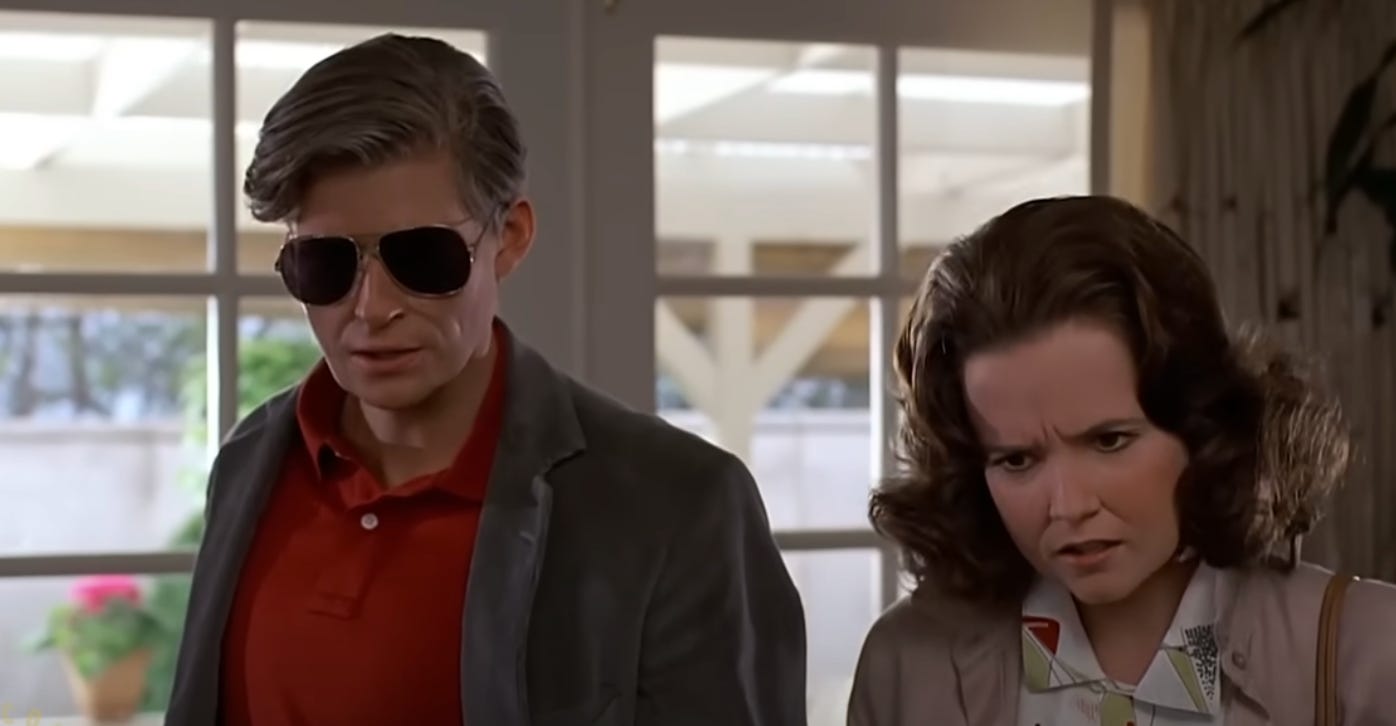
A lot of regret gets framed as "I wish I could go back in time and do xyz..." Whether its personal, like telling yourself not to get addicted or out of shape, or financial like wishing you'd invested in Bitcoin or wishing you hadn't spent 10,000 Bitcoin to buy 2 pizzas in 2010 (cause now those pizzas are worth $661 MILLION!).
But when I find myself day dreaming about time travel and wishing for this or that, I always end up caught in the Butterfly Effect (both the chaos theory and the underrated 2004 movie.) One of the best media illustrations of this is the unappreciated horrifying implications of the movie, Back To The Future.
If you don't remember the details, here's a quick summary. Marty McFly is a cool dude in 1985. His parents are scrubs, and his siblings are screw-ups. George McFly, Marty's Dad, is a perpetual nerd, still picked on by his high school bully. Marty ends up going back in time to 1955 and meets his then-in-high school parents. He intervenes in their lives, gives George a boost of confidence, almost gets molested by his own Mom, and helps George become a new man by punching his aforementioned bully in the face.
Now, the important part is when he returns home. The scene unfolds with Marty not realizing everything would be different. But, in fact, nothing is the same. His siblings are successful and romantically successful. His parents are suave and confident. His Dad is now a successful author, and the high school bully is (for some ungodly reason) still in their lives, but now is waxing George's car. So cool, right? His parents are cool now, right? Wrong. His parents are dead.
He fundamentally changed the personality of his parents, and therefore his siblings. Every inside joke. Every shared moment of intimacy. Every closeness. Everything Marty ever experienced with his family is gone. These people are strangers. And his real family doesn't exist anymore.
I end up thinking the same thing about my own family. I could go back to certain times and make certain changes, and maybe my life would be better. But ultimately, genetics and reproduction work a certain way. If my wife and I didn't have kids at exactly the same time, we would likely get genetically different children. And I can't abide any day dream that leaves me without my kids, who I love. So time travel is out.
Identifying Regret Porn
Now, if you don't know what I mean by "regret porn, it's actually something I've written about before. In fact, in May 2023 I wrote a piece that had a very relevant section, even using the same Mark Twain quote I used above, and the section was titled "The Lessons To Learn, And The Lessons To Leave." In that same piece, I caught this image of click-baity regret porn:
These feelings of "what if you had just done this?" The quintessential "shoulda, coulda, woulda." And sometimes in the abstract, this can just feel like a silly passing thought of "isn't that crazy xyz has done so well?" People can even make some pretty funny jokes about it like "why wasn't I buying all the housing in 2008 instead of playing with legos?"
But regret can start to really hurt when it becomes intensely personal. Regret about things you personally COULD have done something about and didn't. For example, I can look back through my life and see several instances of enlightenment, but no action.
Geopolitics in 2014
In 2014, I had a friend who had majored in Russian and History. We had a conversation about how Putin was, effectively, playing Hitler's game, but more intelligently. When you look at what has happened today with Ukraine, that feels more obvious. We're staring down the barrel of Russian aggression to take back a lot of Eastern Europe. But back then it was far from obvious. My friend just happened to be very smart.
Now, what was I supposed to do with that information in my early 20's? It's an example of a seeing something early and not taking it to a logical conclusion. The "therefore, what?" American Dynamism, today, is approaching bubble-level frenzy. But for years, it was hiding in plain sight. The idea that we need a stronger defense apparatus. Companies like Palantir and Anduril were born out of that kind of observation. Why didn’t I do anything about it?
Bitcoin in 2015
Speaking of Bitcoin pizzas. In January 2015 I was just getting started in venture, and I had a company pitch me on an app to make it easier way for people to buy and sell Bitcoin. Coinbase was 2.5 years old at that point, so they were effectively a competitor. Bitcoin was at $217.46. I even remember the company talking about the recent crater in the price of Bitcoin as a good opportunity for more people to get in.
What's worse, the company offered us a demo to help us buy Bitcoin. It was right there in front of me. But the extent of my exposure to Bitcoin was this 2014 College Humor video about "if Google was a guy." One of the jokes is a guy keeps coming back asking, "What is Bitcoin?", "Bitcoin market value?", "how to buy Bitcoin" and finally he comes back, in a panic, "how to unbuy Bitcoin".
I declined the demo.
Nvidia in 2022
In late 2022 / early 2023, I would often catch myself making the joke (and eventually completely serious comment) whenever someone asked me what I thought the best way to ride the AI hype was. I would just say "buy Nvidia." Now, to my credit on this one, I did buy Nvidia in 2022. But I should have sold everything I had, re-mortgaged my house, and put all of it in Nvidia.
You can see how the regret porn starts to get away from you, no matter what.
Lessons To Leave, Lessons To Learn
I think having regrets about what I should have bought 10 or 20 years ago, or what I should have done in certain instances, or wishing I knew then what I know now. All of those things keep us anchored in the past. And, in the words of Rafiki, you can either run from the past or learn from it. Now, obviously not all of us can run from our decision to not buy Bitcoin by eating bugs in the wilderness. The way I see more people running from their past, rather than learning from it, is by embracing FOMO.
Regret porn induces FOMO and leads you to making bad decisions. Not because you believe the thing, but because you’re so afraid of the regret porn Afraid of missing out again. The same way actual porn can damage your ability to make long-term commitments, regret porn can damage your ability to have long-term conviction.
I've written over and over and over again about about this idea of the role that true beliefs should have in determining your actions:
"So often, people trust nuanced tribal group identity and political association without any basis of first principles. I'm not Mormon, or Christian, or Republican, or a Costco member. I am a system of values and beliefs that determine how I act. Group membership should be a lagging indicator of your beliefs, not a leading indicator. When people substitute their own value system with a cookie-cutter platform from their in-group the first thing to die is nuance."
This is true not just of group membership, but in general. Beliefs should be leading indicators of actions, instead of lagging indicators. You should buy the stock because you believe the story, not believe the story because you bought the stock. We should spend more time finding and understanding stories that we want to believe, and then acting on those beliefs.
Instead of saying, "I wish I'd put $1,000 in Amazon's IPO when I was 7," you should focus instead on "what story would I have believed if I was investing in 1997 that would have led me to put money in Amazon's IPO? And what is the comparable story I should believe today?" And sometimes you'll be wrong, and sometimes you'll be right. But most of the time, the most important things in life are determined by the decisions you get right. Not by the decisions you get wrong. You can often get 99 decisions wrong, as long as you get one right.
In general, I think the mindset of focusing on the present, and the lessons to be learned, and the stories to be believed; that is the most important takeaway. To paraphrase Mark Twain: "we should be careful to get out of a regret only the wisdom that is in it—and stop there." I've written before about post-mortems and how reflections on drivers of regret can be instructive:
"Reflection changes behavior more effectively than any program or process. So adopt that mindset with everything you do. “I know I won’t do this perfectly, so I need to do it with the attitude of doing it even better the next time I do it.” As soon as we stop learning we die."
Bask In Your Golden Age
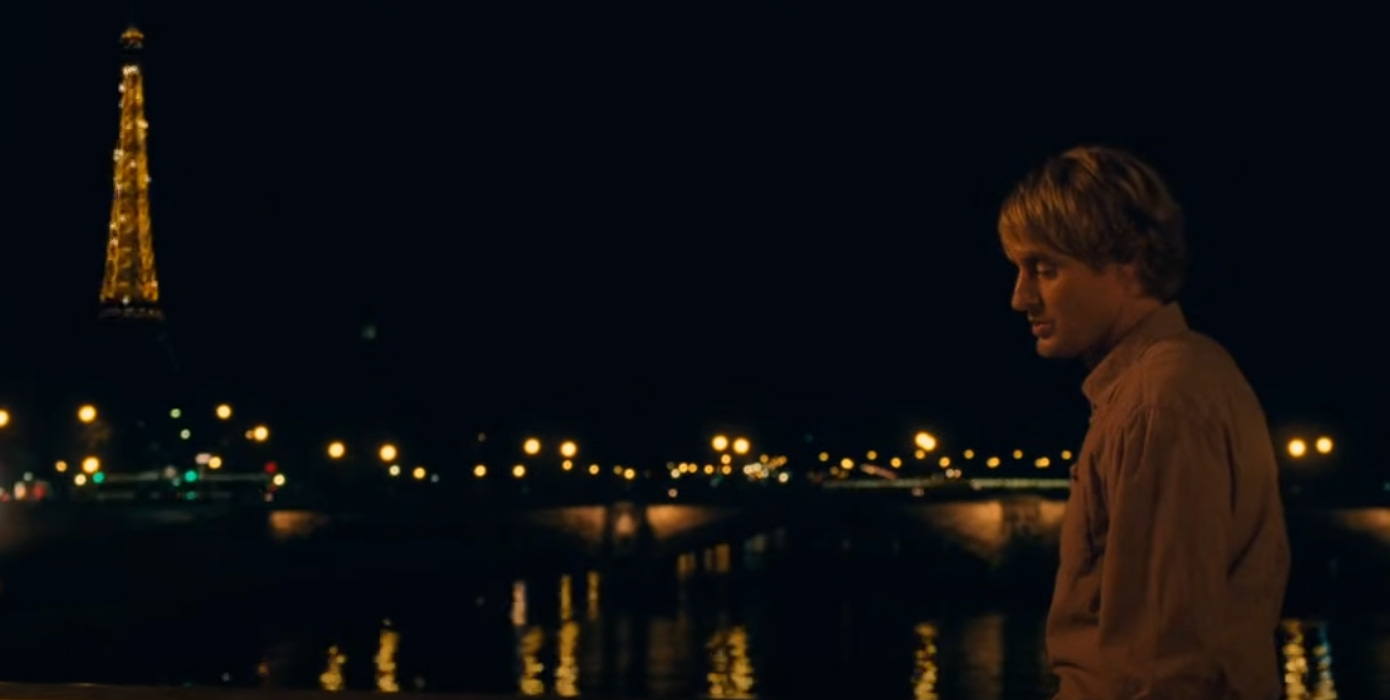
I'll end with a fairly random reference to the 2011 movie, Midnight in Paris. I find in my mind there are well-worn patterns of thought-trends. First I think about something, like the price of Bitcoin. Then my mind goes to time travel. Where would I go? Back to 2015? To that demo? And put all the money from my first startup into Bitcoin? Then I think about Back to the Future, and how I don't want to lose my kids. Then I feel guilty for getting lost in the past. Then, I think of Midnight in Paris.
If you haven't seen the movie, the plot is about Owen Wilson who is a screenwriter in 2010 named Gil, and is spending time in Paris, working on his novel. But he keeps getting lost in the past, dreaming about the Lost Generation of the 1920s; yearning to rub shoulders with the Fitzgeralds and Hemingways of that generation. Somehow, he randomly finds himself transported back to the 1920s and is meeting his idols. He starts to fall for a woman named Adriana. While enjoying what he sees as the Golden Age. of Paris, he and Adriana somehow then stumble into the Belle Époque, of the 1890s; an era Adriana considers Paris's real Golden Age. They have this exchange:
His insight was, effectively, the grass is always greener:
"If you [live in the past], then that past becomes your present. Soon, you'll start imagining another time that was really your golden time. That's what the present is; it's a little unsatisfying. Because life is a little unsatisfying."
She explains to him something he had previously confided in her. He left Paris once before, and he regretted it.
"Yeah, I did regret it. It was a bad decision, but at least it was a choice. It was a real choice. [Living in the past] doesn't really work. If I ever want to write something worthwhile I have to get rid of my illusions that I'd be happier in the past."
Man. Even before I started writing this piece I had thought about Midnight in Paris, but I hadn't re-watched it in years. Shocking how well it works to close out this conversation!
So Gil leaves Adriana in 1890 and goes back to 2010 Paris. As he's walking, he runs into a woman named Gabrielle; a French antique dealer he'd bonded with previously. He offers to walk with her, but immediately it starts to rain. A potential regret in the making. But, in the spirit of Gil's prior monologue, she makes a choice. A real choice. To walk in the rain. After all, as Gabrielle points out, "Paris is the most beautiful in the rain."
So I'll close with that. Dance in the rain my friends. Bask in your own Golden Age. It can, and will always be, in the present. Does the past hold beauty? Yes. It also holds all your shame, and regret, and pain, and sorrow. But don't let fear be the result of the past. Let it be freedom. As Tim Urban likes to point out, there is only one path the past has taken, but the number of paths the future could take is unlimited.
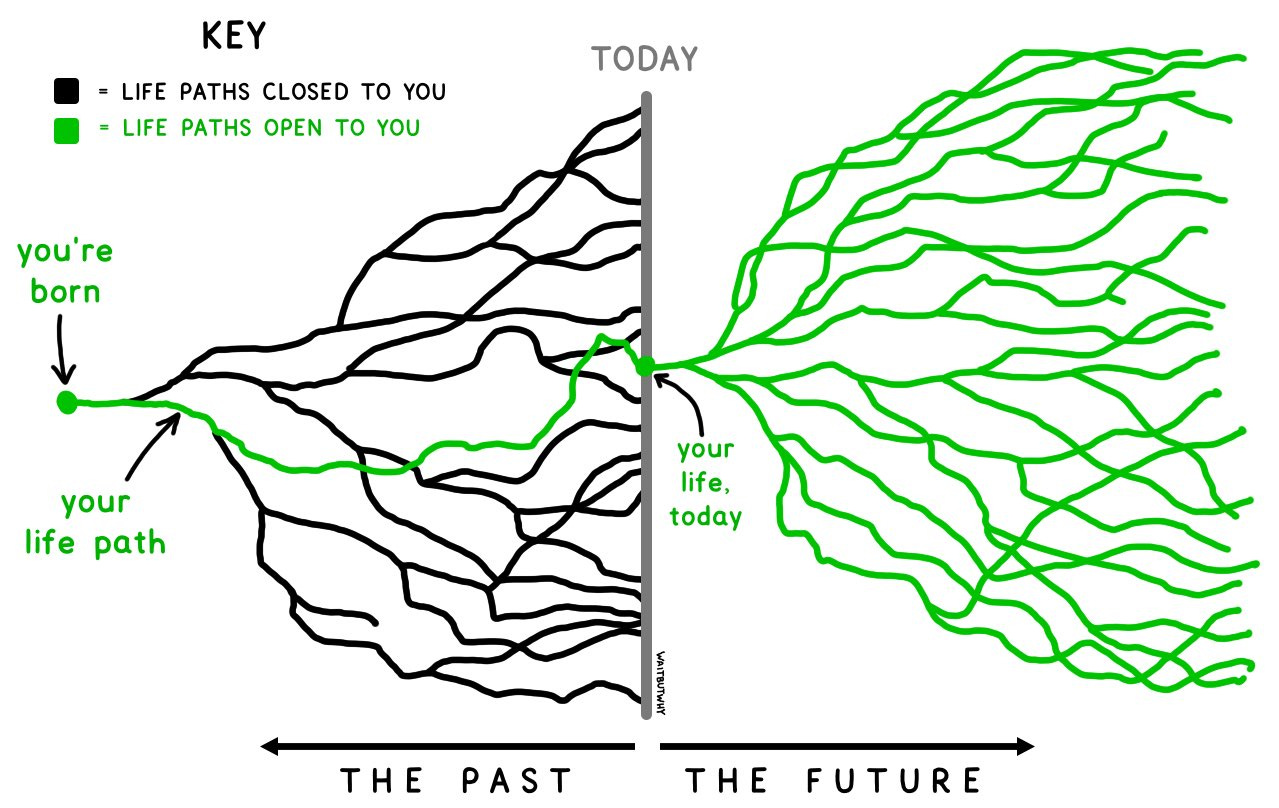
Enjoy the rain!
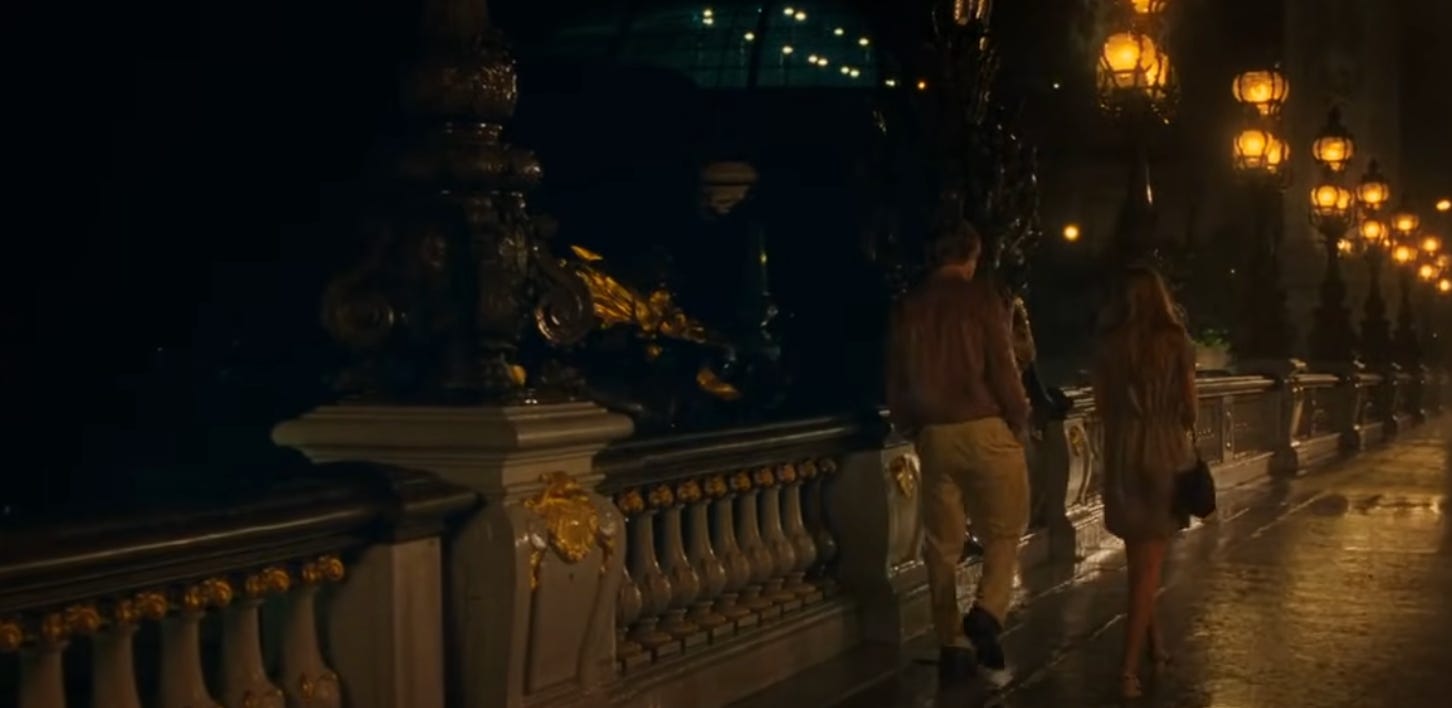
Thanks for reading! Subscribe here to receive Investing 101 in your inbox each week:





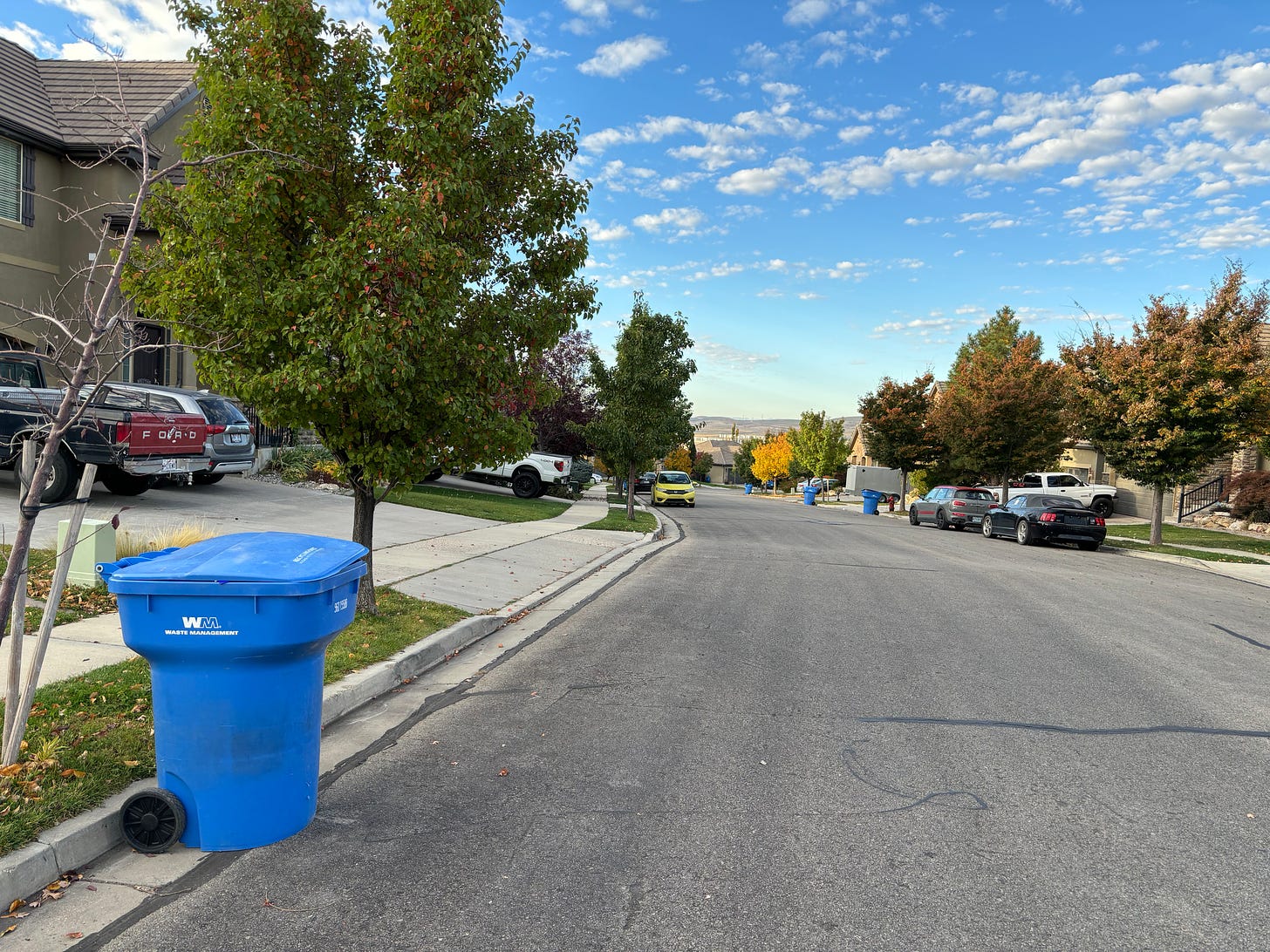
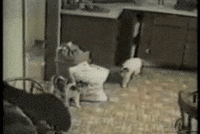
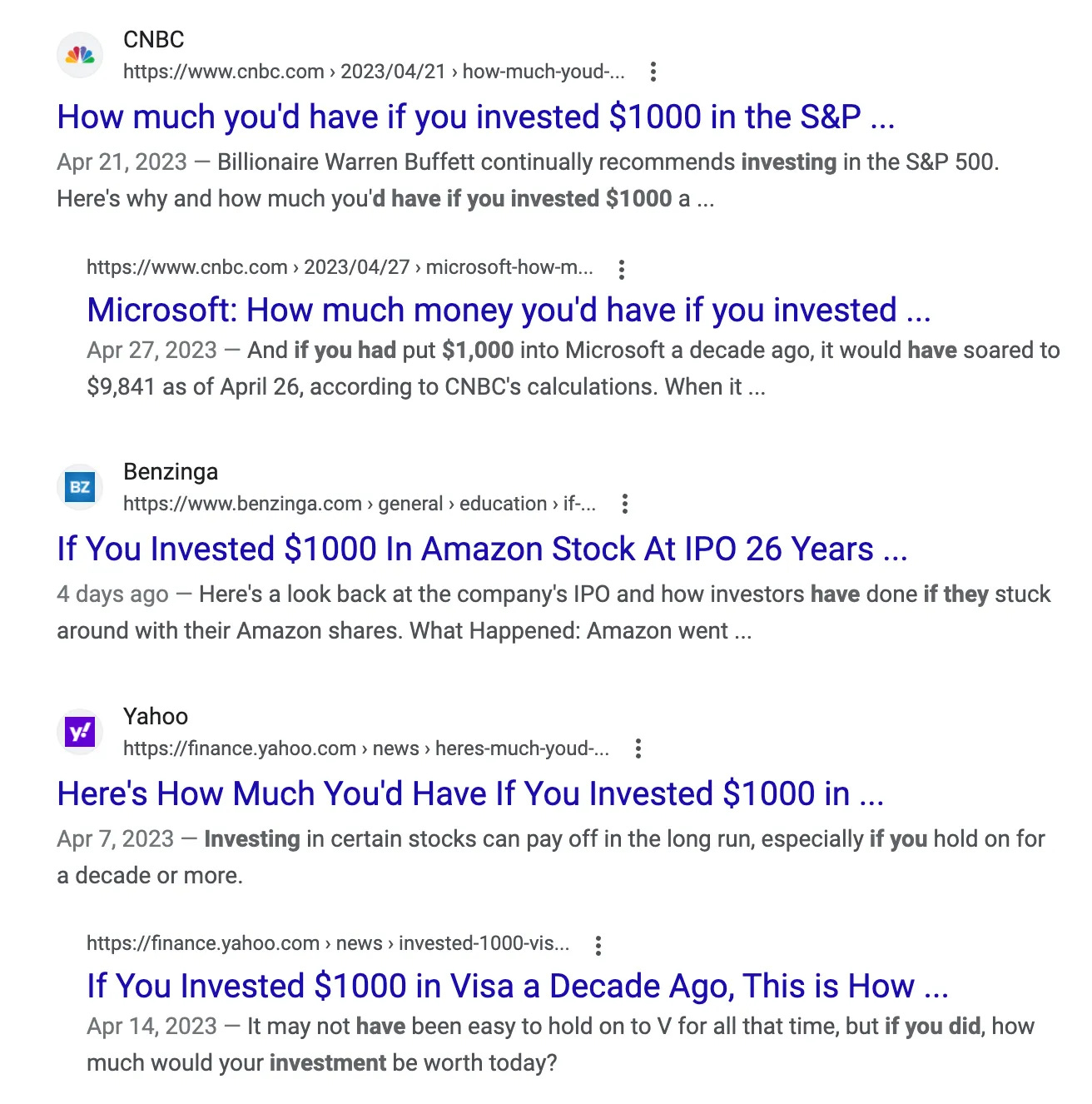
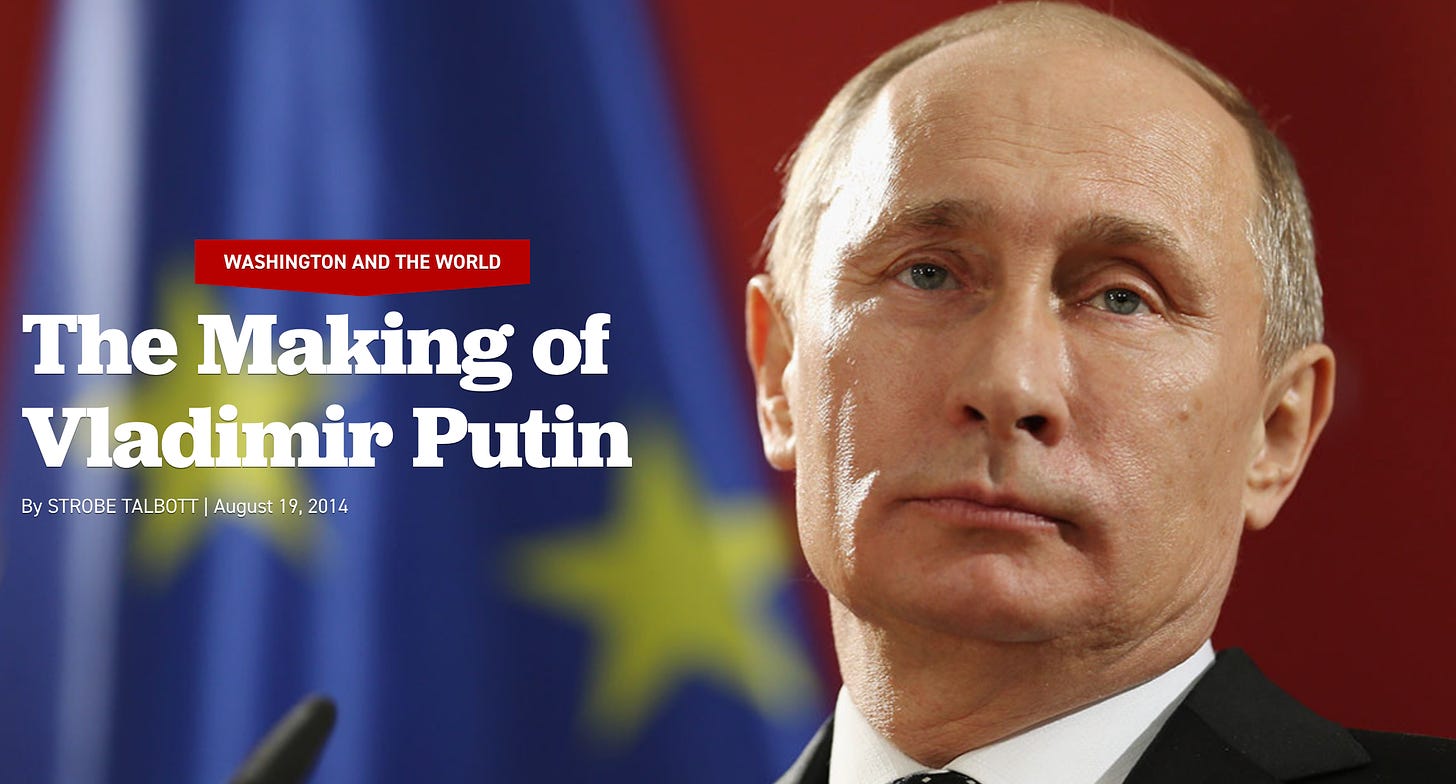
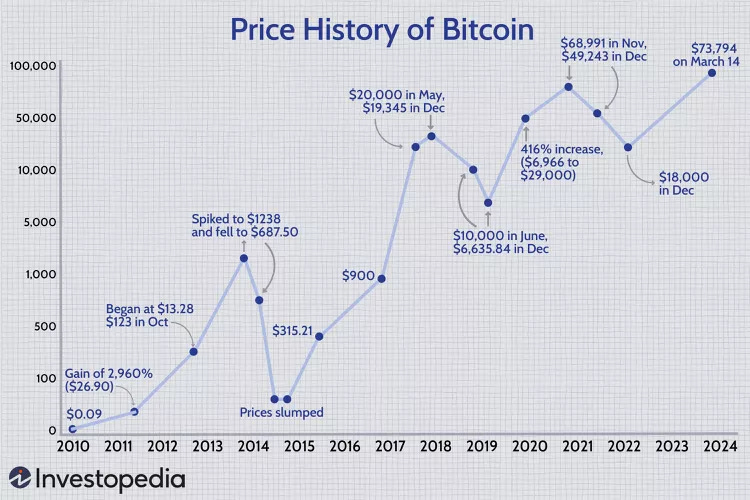
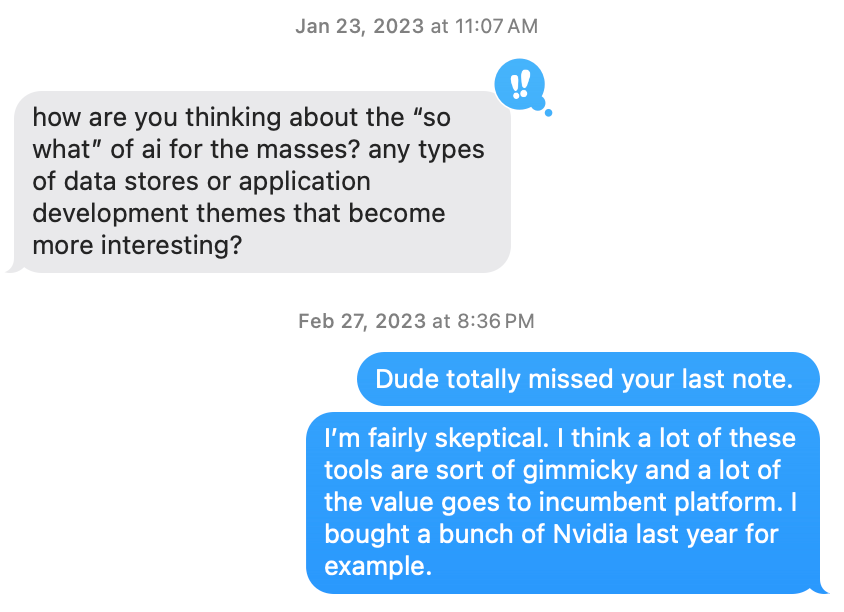
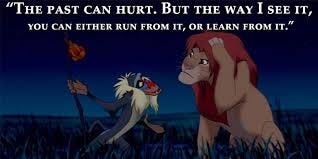
What a great read. I think a little regret porn can be healthy in the right areas.
Regretting buying GME calls — bad.
Regretting not investing in the Nasdaq sooner and for the long term — good.
The key is to learn from your mistakes and the mistakes of others, while staying objective looking at the data!
Enjoyed the read. Simple & effective. Since I am lazy, I always like to find people that have written down my own beliefs and values. So, I can just share that. A great term, regret porn, will use it.;)